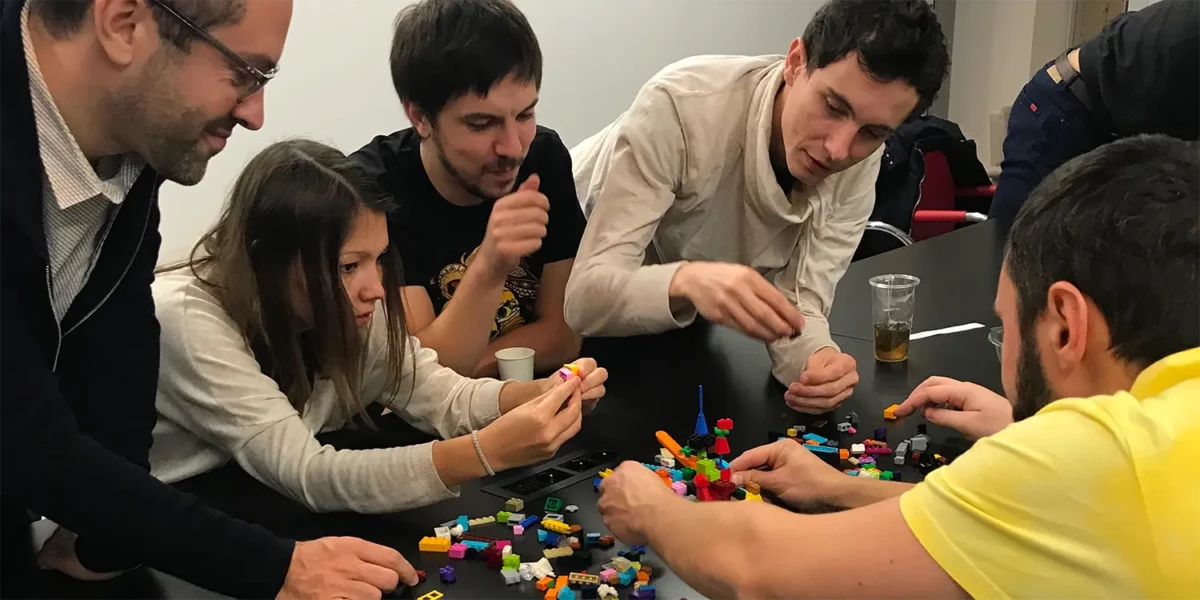Contents
As product owner for our Implio service, it’s Olivier Vencencius’ job to ensure that our all-in-one content moderation tool evolves correctly – for clients, moderators, and stakeholders. Just how does he manage to juggle all the different needs, wants while keeping the product vision on track?
Interviewer: Hi Olivier, thanks a lot for taking the time to share your knowledge, I know you are extremely busy! Could you start us off by telling us a little more about you and your time at Besedo.
Olivier: Sure. Well, I’m originally from Belgium (the French-speaking part!), but I’m now based in Besedo’s Malta office where I’ve been working as product owner for Implio for the last two years. I’ve actually been working for the company for the past six years though. I studied IT originally, but started life here as a content moderator for one of our clients. In my free time I developed content moderation tools because I was fascinated with how even simple tools could help optimize the process.
This lead to a role as IT support for our in house teams supporting the tools I had created, before joining the newly set up development team where I working on the very first version of what has now become Implio. From there I joined our internal Centre of Excellence, specializing in process improvement. There, I began to oversee and manage the development of different tools, and share knowledge and best practice about using them, before taking on my current role as product owner.
You could say that all the different hats I’ve worn at Besedo so far has perfectly prepared me for my current position!

Interviewer: What do you do day-to-day; as Implio’s product owner?
Olivier: It’s quite a broad remit, but there are some key things I’m involved with. Essentially I’m in charge of how the product develops, so I work closely with the development team, helping them plan and implement features within Implio, in order to consistently evolve the product. We use Agile methodology, which means we work in an incremental and iterative way – updating and changing feature elements as required.
Work is organized into sprints, so we’ll focus on a particular feature within the product for a two week period. We’ll have brief daily meetings to discuss progress and issues before getting on with assigned tasks and resolving any concerns.
I’m also responsible for defining the product vision – the why, what, where, and how. It sets the scope for the product and gives us a base to validate our next objectives and ensure that we always deliver value to our users.
Interviewer: Can you talk us through the process of building a product roadmap and how this helps define what steps need to be taken?
Olivier: Certainly. The roadmap is a list of all the short and long term requirements we’ve gathered about Implio from all of the relevant stakeholders. This includes internal stakeholders from across the company – our content moderators, team leaders and managers, as well as feedback from external sources: our clients and prospective clients, so that we thoroughly understand the features they value and what their pain points are.
We begin the process of reviewing all the feedback with the R&D team; looking closely at the most frequent and important pain points and brainstorming ways to tackle them. Once we’ve established this list of possible improvements we prioritize them based on the value they give and their complexity. All of this goes into our roadmap which always remains tied to our product goals and objectives.
Interviewer: Could you give an example of a particular feature(s) you’ve implemented recently?
Olivier: We are currently focusing on creating a smoother on-boarding process for our clients. As part of this we have been working on new set of slides that give new users a tour of the product on sign-up. We have also provided users with new customisable settings related to manual moderation.
Another focus point for us is to expand our existing automation capabilities we recently we did that by releasing a new geolocation tool and we are close to the release of a new set of solutions to tackle common moderation problems using AI such as a language detection tool.
These latter two are specifically related to fraud and scam prevention; allowing us to detect suspicious terms in different languages and hone in on activity taking place in locations that don’t match with a user’s IP address. Our goal with Implio is ensuring that our clients have all the best solutions to catch and prevent scams within one tool.
Interviewer: How do you future-proof Implio? Is that even possible?
Olivier: It all comes from knowing what the current challenges are and taking time to anticipate what’s coming. From my time as a moderator and from our internal, ongoing knowledge sharing I know the challenges in dealing with user profiles, behavior and content for online marketplaces which also applies to dating and sharing-economy sites. I add to this knowledge regularly through user research and interviews.
Thanks to our engineering team and my background of software development I can identify easily what is involved and what are the steps in developing the best solution for tackling these challenges. Combined that knowledge and experience gives me a pretty good understanding of what we need to do in order to build the right tool for both current and future needs. Within our R&D division we are also all encouraged to continuously be on the lookout for new solutions and to experiment with new things we believe could make a difference in the product and for our customers, particularly where automated AI and computer vision are concerned.
For specific content moderation needs and trends within trust and safety we have a full team dedicated to research and internal knowledge sharing so when a new moderation need surfaces I am informed immediately.
I also work closely with our sales and customer success team to identify the needs of our users. We spend time analyzing what they are trying to achieve and design our solutions so new features don’t just solve a specific problem for one client, but benefit our entire userbase and help them solve issues in a smart and innovative way.
Knowledge sharing and ensuring that all teams work closely together across the company is crucial for understanding what our challenges might be in six, 12, or 18 months’ time – or even further down the line. The timeline for implementation can take a similar amount of time, so understanding trends early is an important aspect of our work and crucial to ensuring that our tool is able to solve the challenges of tomorrow.
Interviewer: Speaking of challenges, what’s the biggest challenge in your job?
Olivier: There’s always a lot to do, which is exciting, but it also means that we need to stay focused and prioritize. The customer’s needs come first so we need to action things that are most valuable to them. However, we also need to make sure that what we do balances with the company’s objectives; which involves mapping each feature to the overall product vision so that everything fits together. It can often be a tough decision to make.
Interviewer: And what’s the best or most interesting part of being the product owner for Implio?
Olivier: Having a partnership with customer where we share ideas and discuss feedback. Seeing them being successful and happy with the product is one of the most exciting things about being a product owner!

Olivier Vencencius
Olivier has worked with Besedo since 2011. He has held a number of roles within the company and has played an integral part in the development and success of Implio.
The latest around content moderation, straight in your inbox
Subscribe to get our newsletter to stay updated.
Related articles
See allSee all articlesThis is Besedo
Global, full-service leader in content moderation
We provide automated and manual moderation for online marketplaces, online dating, sharing economy, gaming, communities and social media.





